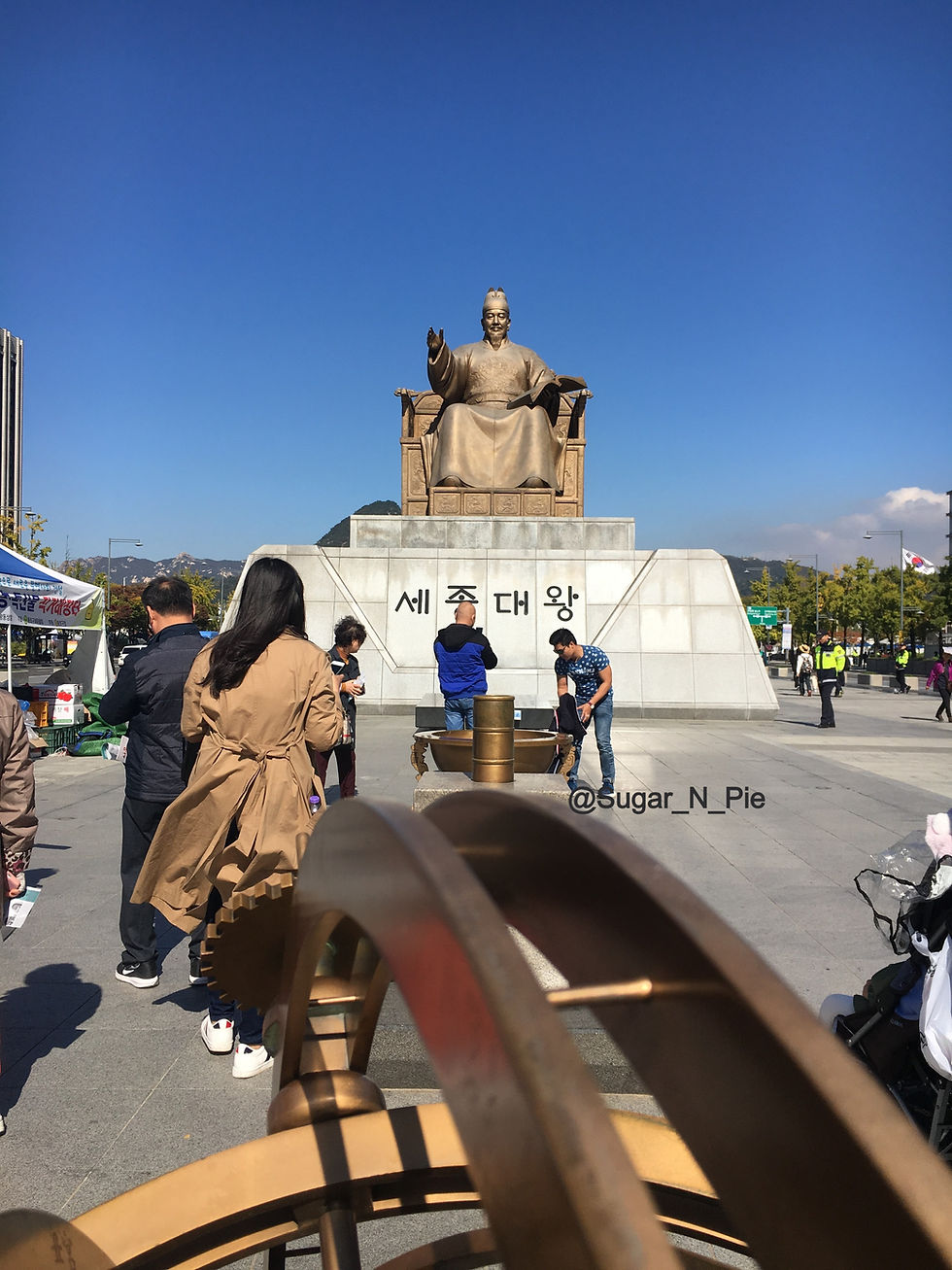[Seoul Travel Guide] The heart of Korea Landmark, Gwanghwamun Square
- piepieworlds
- Jun 6, 2023
- 2 min read
Updated: Sep 22, 2023
Gwanghwamun Square is a large public square located in the heart of Seoul, South Korea. It is a popular destination for both locals and tourists, as it offers stunning views of some of the city's most iconic landmarks.

General Information
Address of Gwanghwamun Square
172 Sejong-daero, Sejongno, Jongno-gu, Seoul, South Korea.
서울특별시 종로구 세종대로 지하 172 (세종로)
How to go to Gwanghwamun Square?
Option 1 - Take subway Line 1 to Jonggak Station (Exit 1). Walk 450m to the square.
Option 2 - Take subway Line 3 to Gyeongbokgung Station (Exit 6). Walk 260m to the square.
Option 3 - Take subway Line 5 to Gwanghwamun Station (Exit 2).
Entrance Fee of Gwanghwamun Square
Free
Opening hours of Gwanghwamun Square
24 hours open
Historic Background

The square is named after the Gwanghwamun Gate, which is a historic gate of Gyeongbokgung Palace that was originally built in 1395 during the Joseon Dynasty.
This area was once Yukjo-geori (Avenue of Six Ministries), the center of Hanyang which was the capital city during Joseon Dynasty. In 2009, Seoul Metropolitan Government transforming 10 lanes out of the 16-lane roadway into a national landmark square for Seoulites to rest and socialize.
Features
Gwanghwamun Square is 555 meters in long and divided into six sections. Two large statues of King Sejong the Great and Admiral Yi Sunshin stand at its center of the square.
King Sejong the Great (1397-1450) is one of the most revered monarchs in Korean history. The majesty is the forth king of Joseon Dynasty. He created Hanguel (alphabet of Korea). Other main inventions from King Sejong’s reign eg. rain gauge and celestial globe, are also displayed in front of King Sejong.

Admiral Yi Sunshin (1545-1598) is one of the most respected figures in Korea history. He is the naval commander who noted for his victories against the Japanese navy during Imjin War in 1592-1598. The 12.23 fountain in front him commemorates the admiral’s 23 battles and 12 warships in the war.

Other than that, there also have the popular eg. sculpture of Haechi (the symbol of Seoul), flower carpet and Yeoksamulgil (Waterway of History) at the either side of the square.
Gwanghwamun Square is also surrounded by several important buildings and landmarks, including the Gyeongbokgung Palace, the National Museum of Korean Contemporary History, and the Sejong Center for the Performing Arts.

Overall, Gwanghwamun Square is a must-visit destination for anyone interested in Korean history, culture, and architecture. It provides a beautiful setting for taking photographs, enjoying the outdoors, and exploring some of the city's most iconic landmarks.
Bon voyage!
ヾ(•ω•`)o

![[Seoul Travel Guide] Deoksugung Palace, one of the Five Grand Palaces that Must-Visit In South Korea](https://static.wixstatic.com/media/ad3217_4eeeb8a749f34af0adee546cf1e0e529~mv2.png/v1/fill/w_940,h_788,al_c,q_90,enc_avif,quality_auto/ad3217_4eeeb8a749f34af0adee546cf1e0e529~mv2.png)
![[Seoul Travel Guide] Gyeongbokgung Palace, The Grand Palaces that Must-Visit in South Korea](https://static.wixstatic.com/media/ad3217_2a683ecc5734465eb82000c123ebd725~mv2.png/v1/fill/w_940,h_788,al_c,q_90,enc_avif,quality_auto/ad3217_2a683ecc5734465eb82000c123ebd725~mv2.png)

Comentários